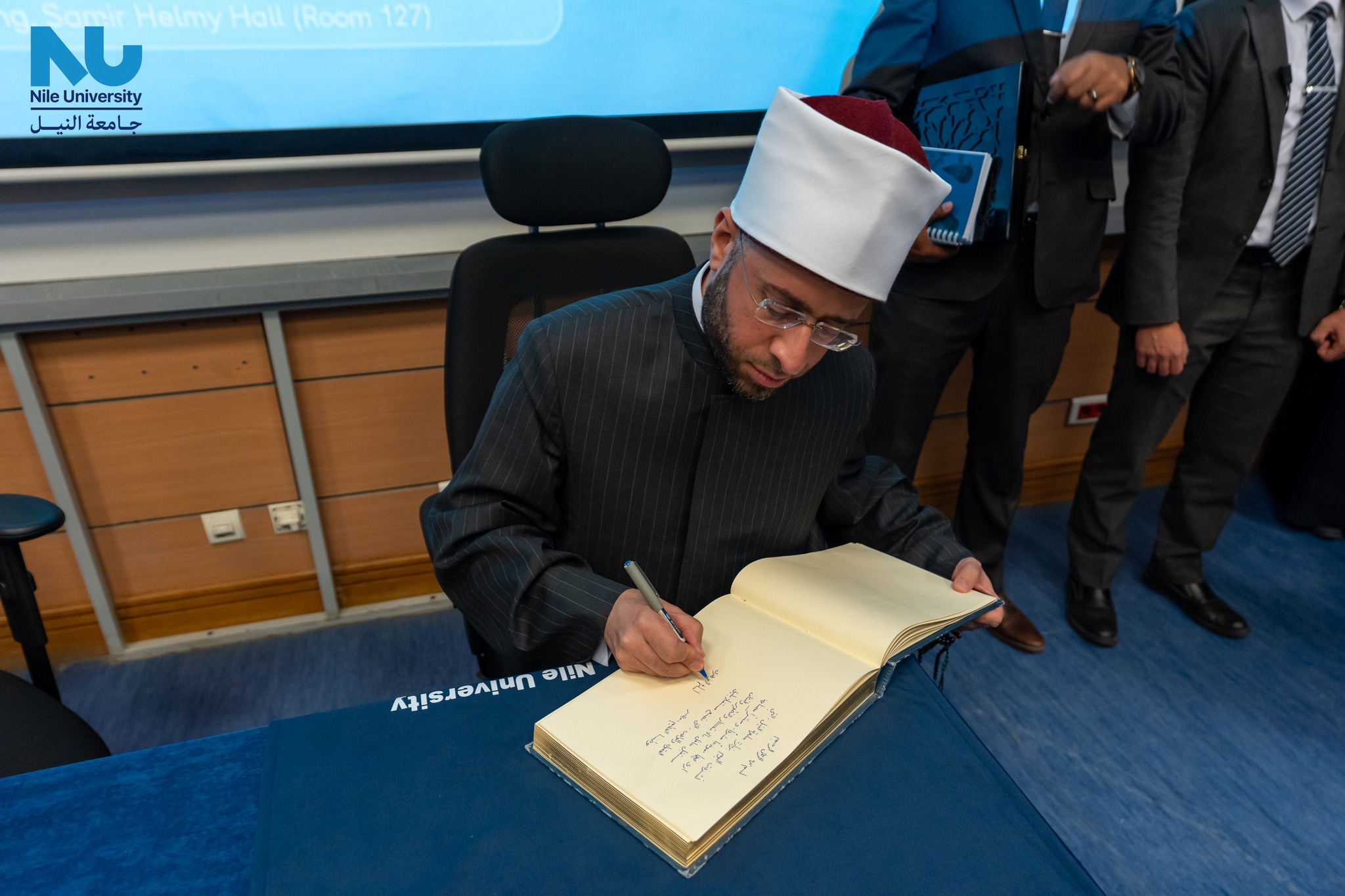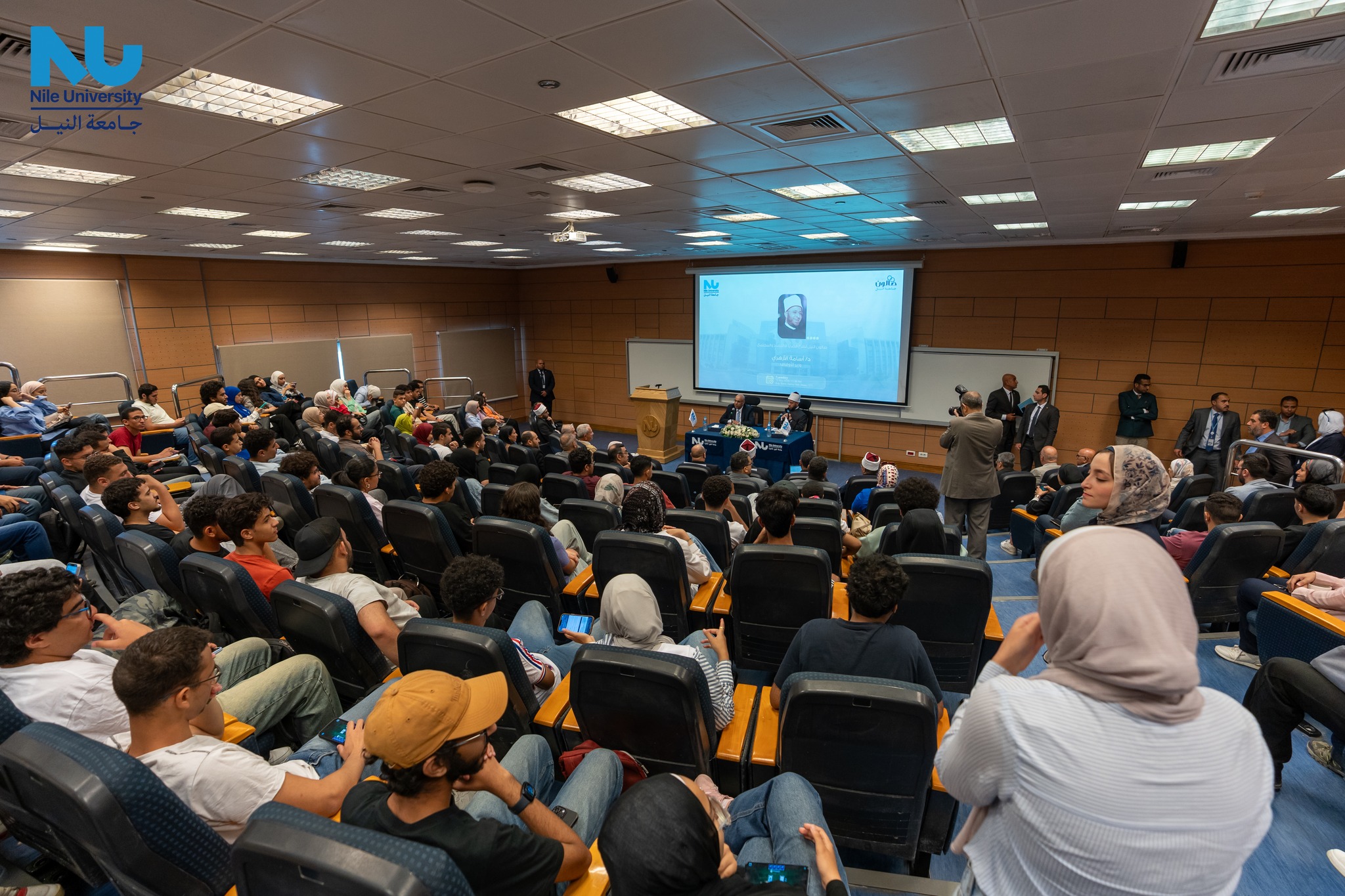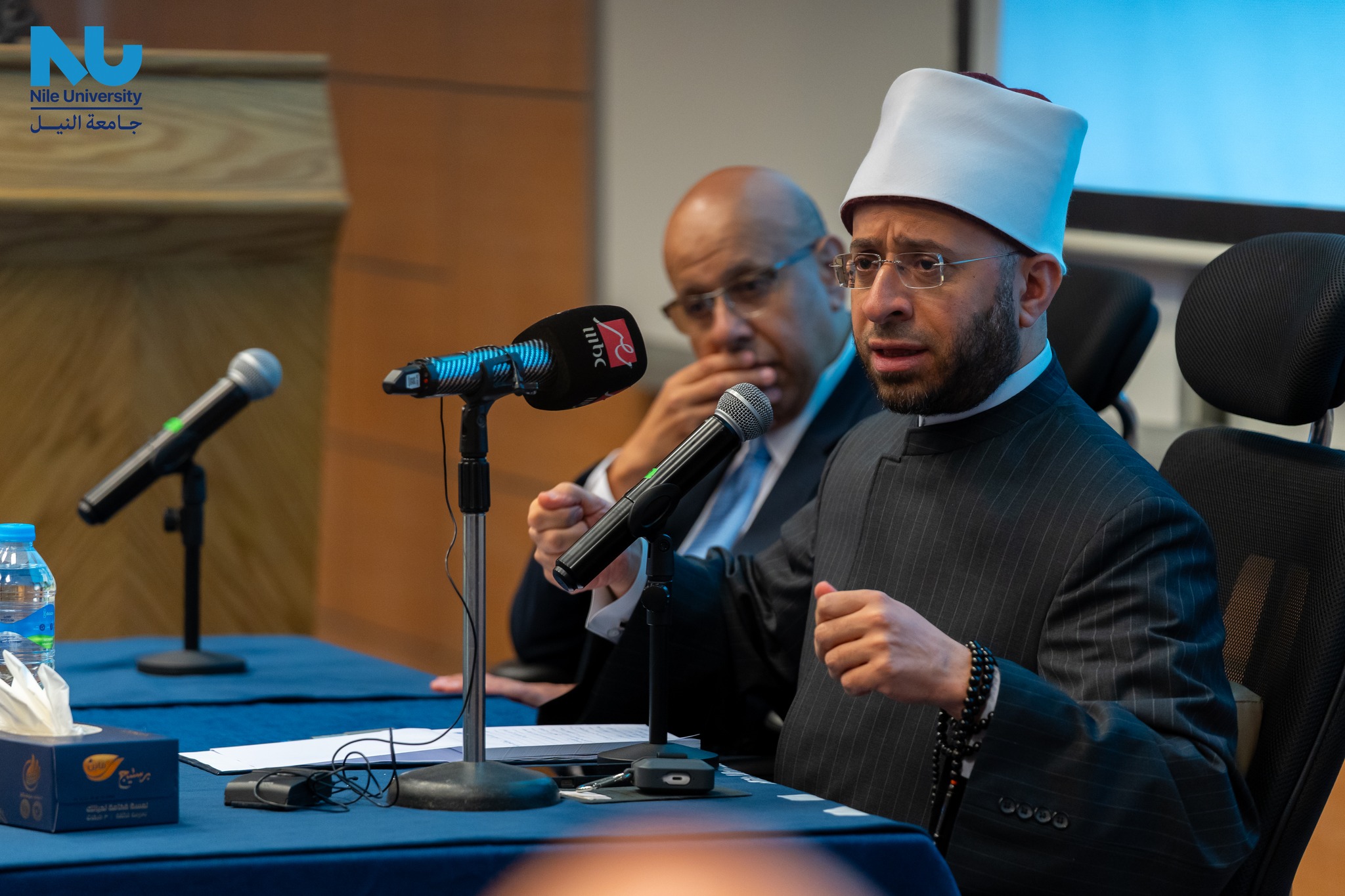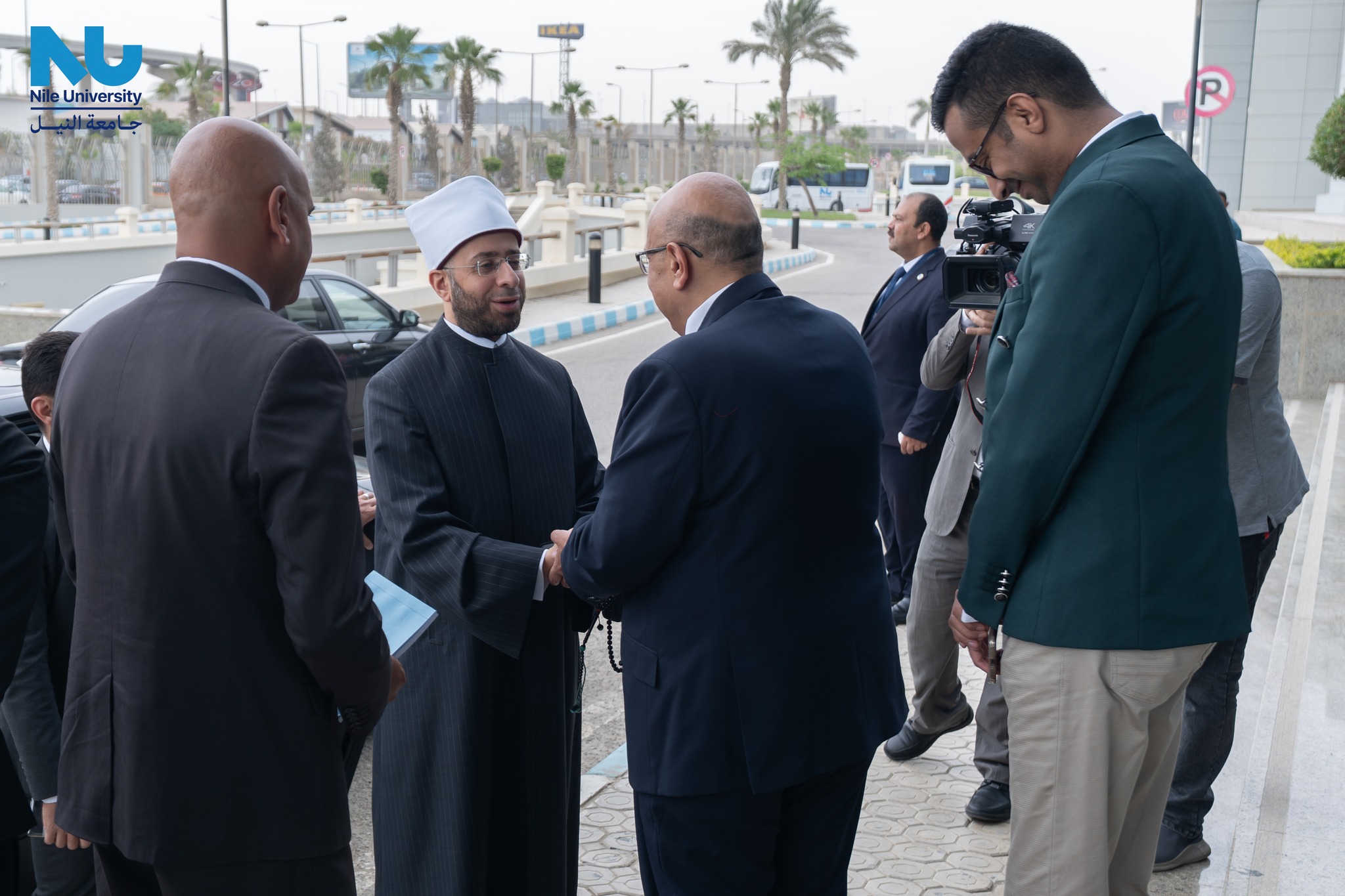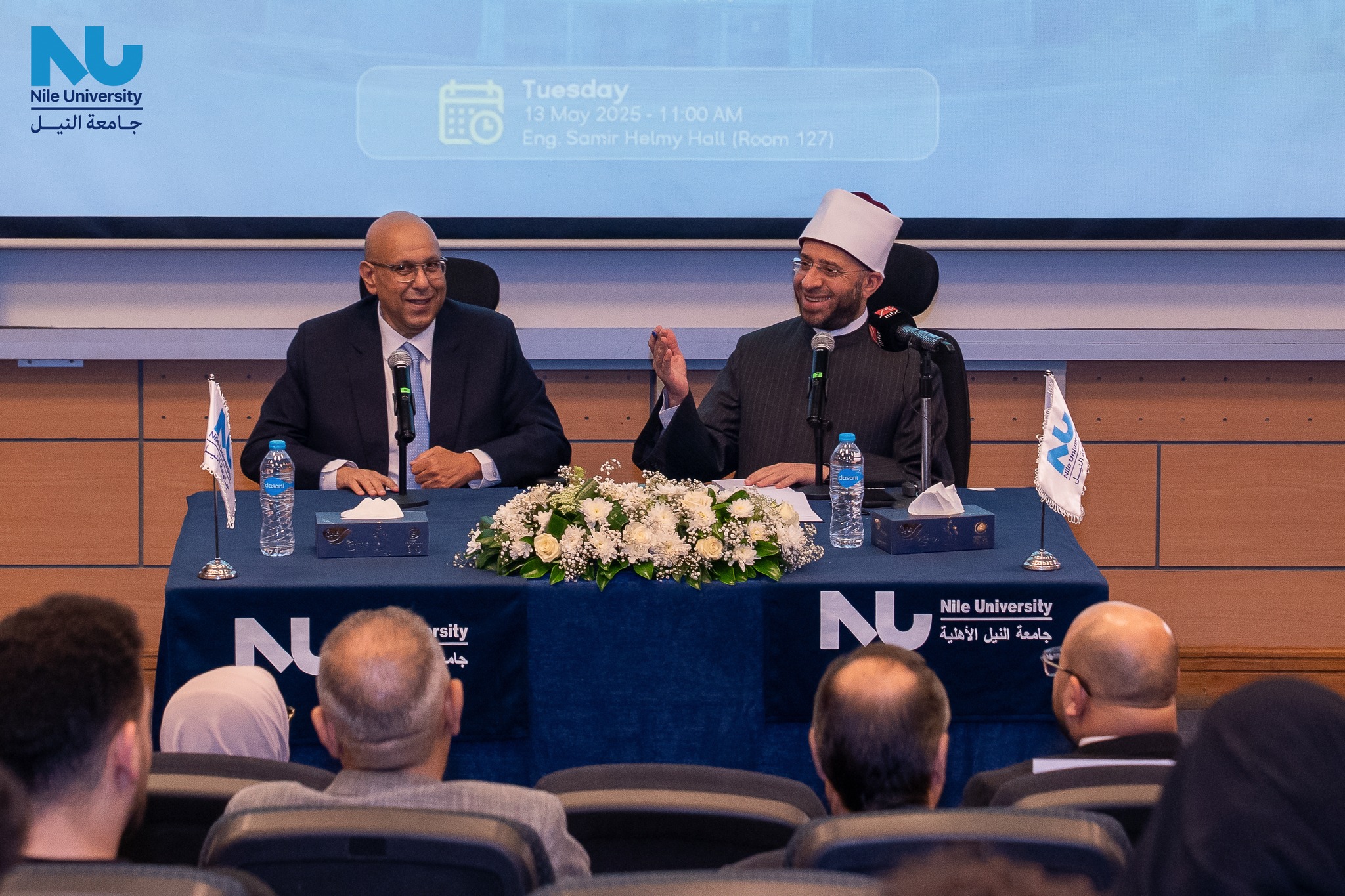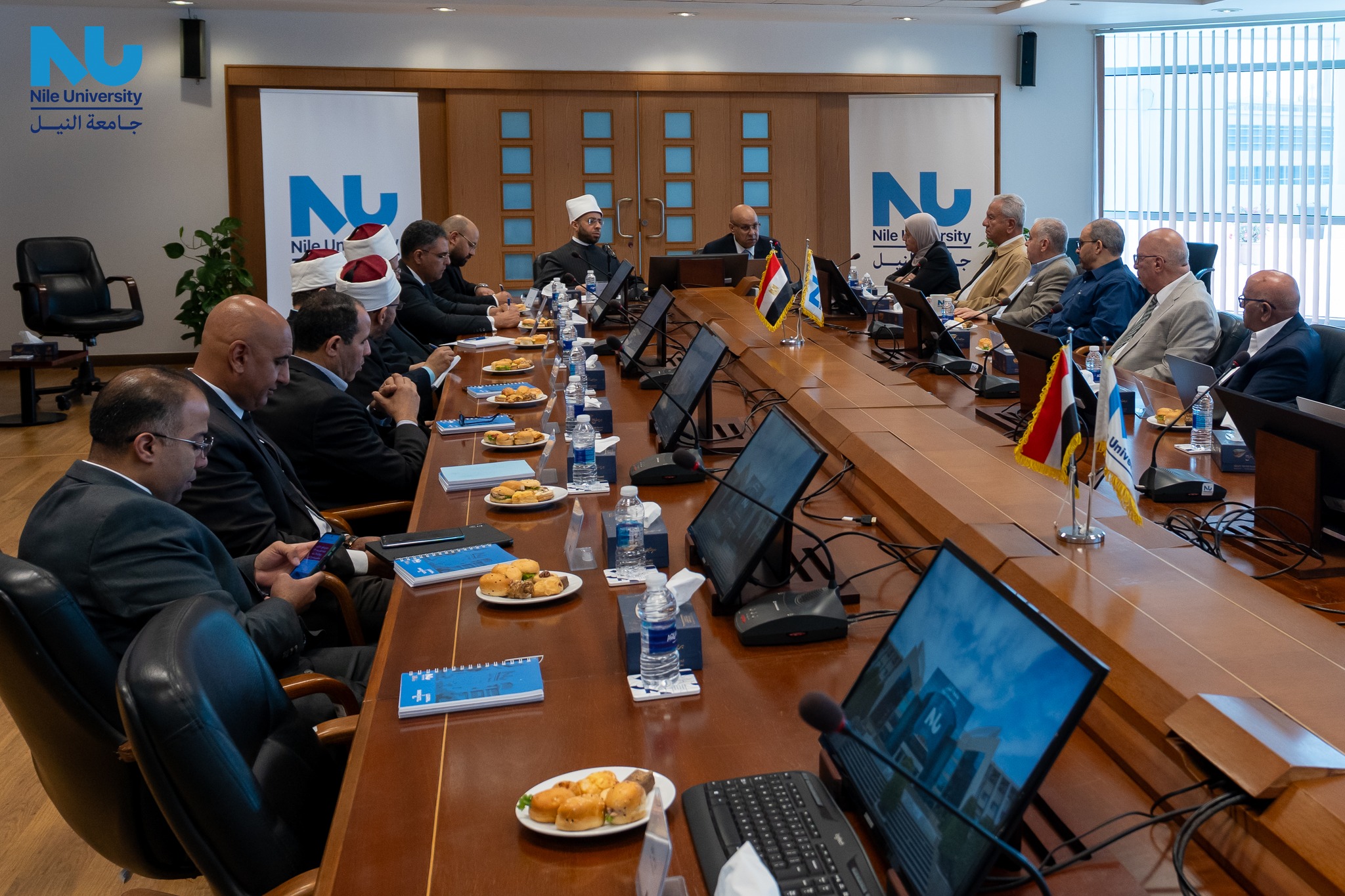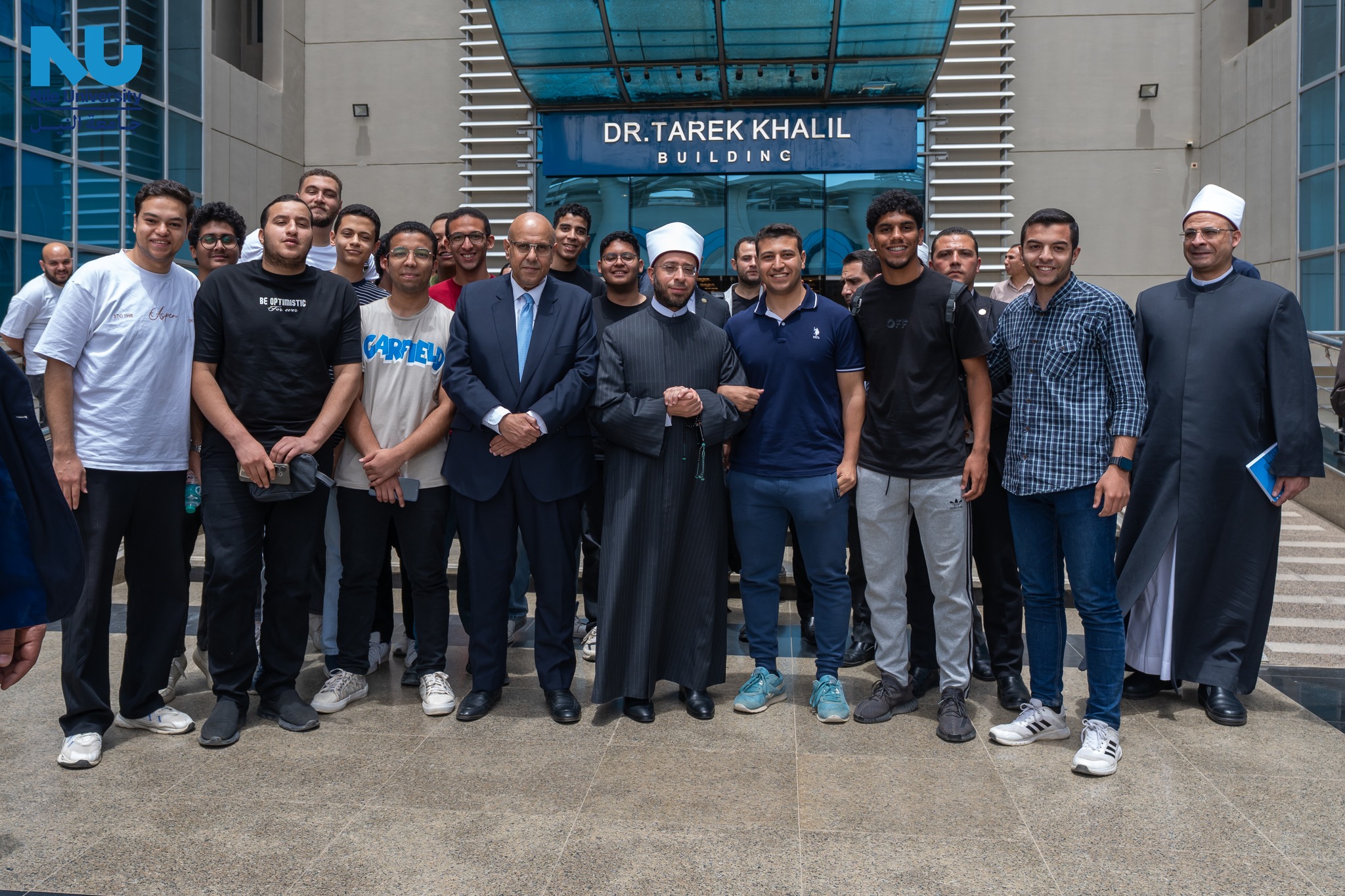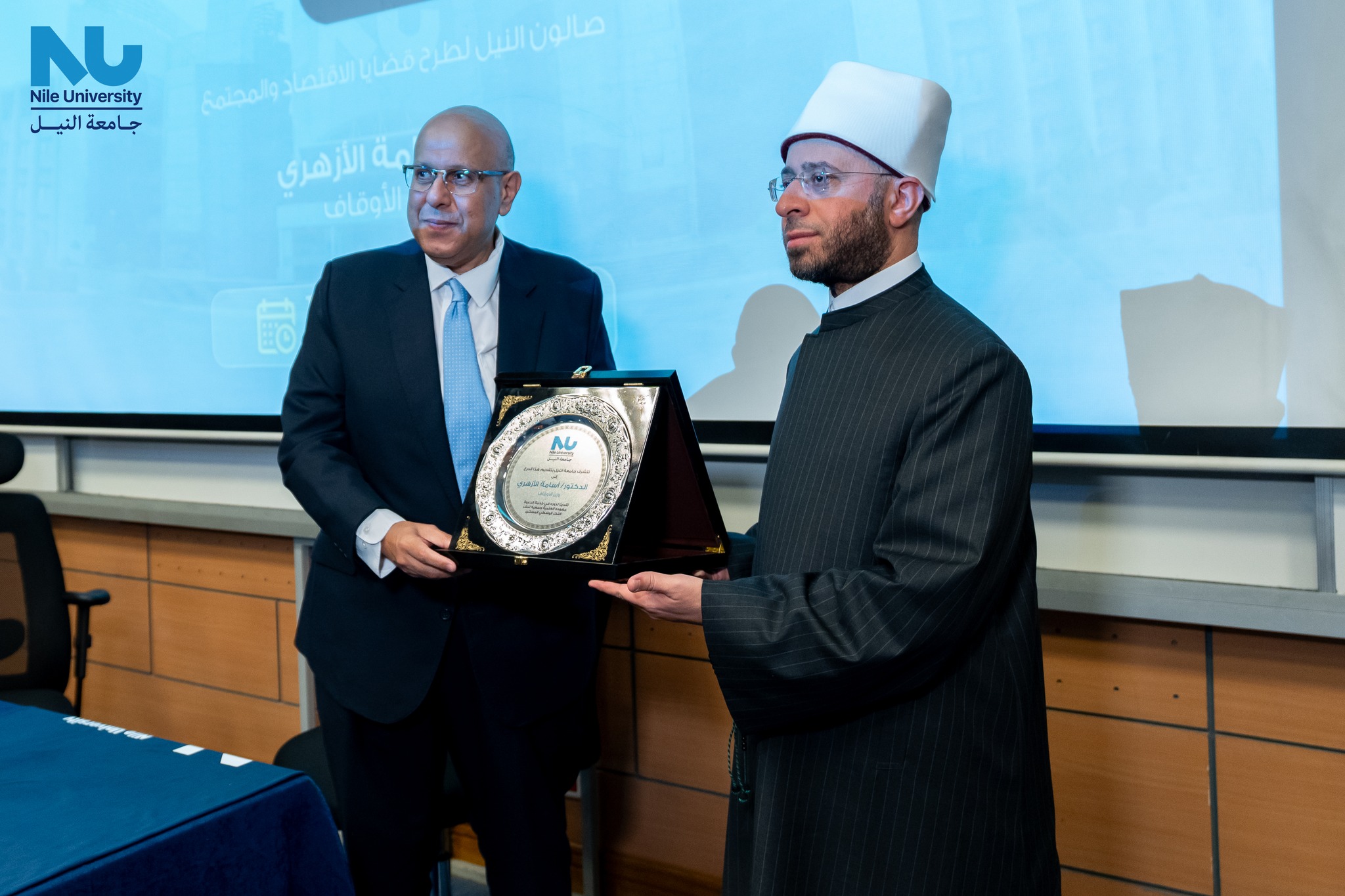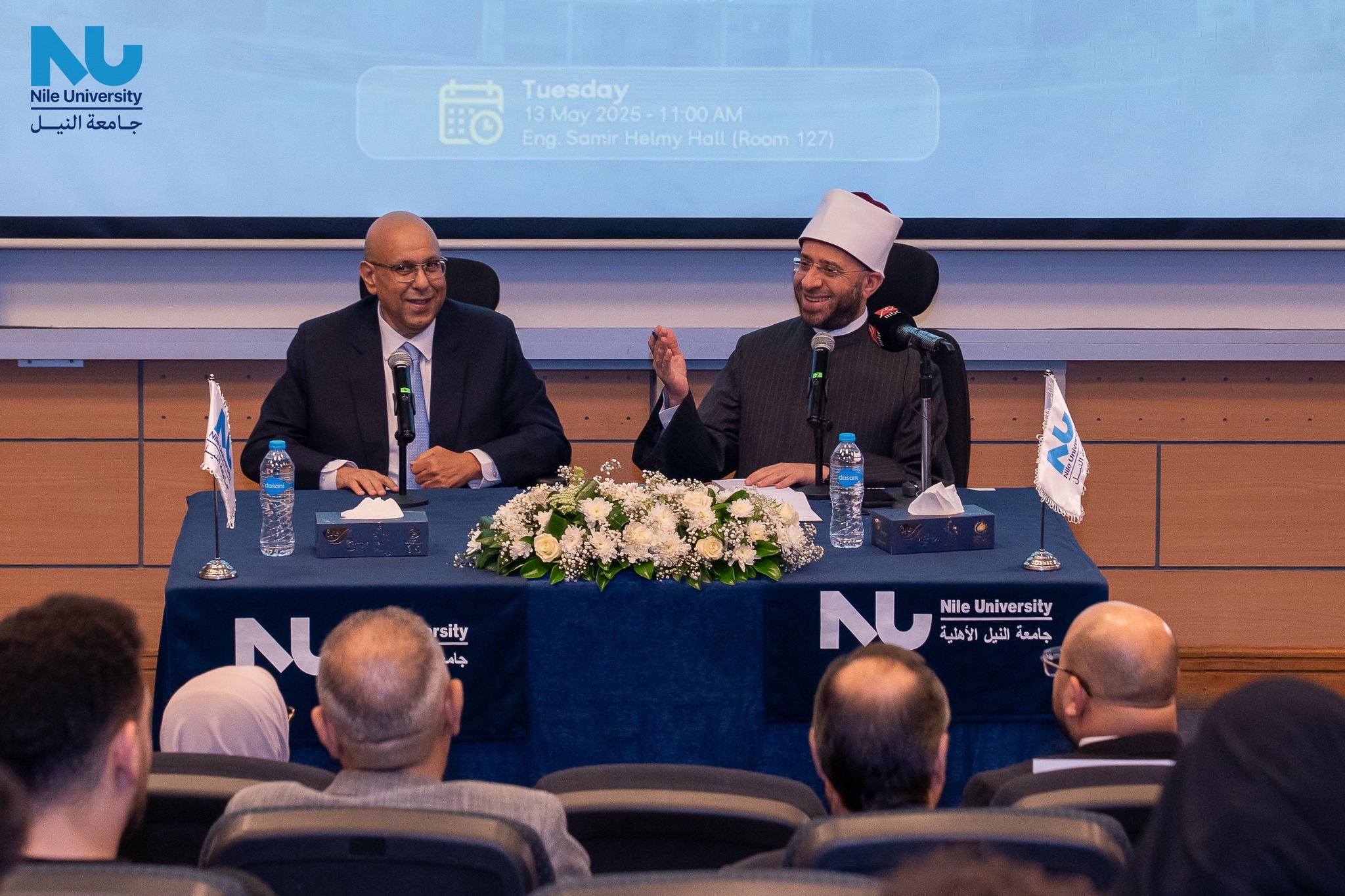
Minister of Endowments Engages with Students at Nile University Salon: “Youth and Building the Future”
As part of Nile University’s ongoing initiative to inspire and empower youth, the university hosted His Excellency Dr. Osama El-Azhari, Minister of Endowments, in a special session of the university’s salon series under the title “Youth and Building the Future.” The event created a dynamic space for direct dialogue between students and the minister, highlighting the university’s commitment to fostering critical thinking and societal engagement.
Dr. El-Azhari addressed a wide range of questions from students and offered thought-provoking insights into the meaning of religious renewal. He explained that the true essence of renewing religious discourse lies in extracting values, models, and principles that ignite energy, inspire minds, and align with the higher objectives of Sharia. According to the minister, this process is not just a religious duty—it is a foundation for civilization building, innovation, sustainable development, and social reform.
He stressed that effective religious discourse must encourage individuals to observe societal problems with a spirit rooted in faith and wisdom, and to respond by developing practical, innovative solutions. “This is how we achieve a form of renewal that contributes to scientific research, invention, and national development,” he stated.
In addressing modern challenges, Dr. El-Azhari emphasized the necessity of confronting both religious and non-religious extremism, likening it to extinguishing a fire that must be put out quickly so that progress can resume. A central part of this effort, he noted, involves embracing modern sciences and the world of artificial intelligence—not with fear or hesitation, but with confident awareness. He called on the youth to approach these tools with a balanced mindset that harmonizes heritage with modernity, and that promotes innovation, participation, and responsibility.
Referencing historical experiences, the minister compared two figures from modern Egyptian history: one who was intellectually paralyzed by the sudden influx of Western science during the French campaign, and another who embraced the change with an open mind and moved forward without losing his values. The lesson, he said, is clear: adaptation and integration are vital for advancement.
During the session, students also raised practical and ethical questions ranging from everyday religious rulings to the role of women in society and the contributions of the Ministry of Endowments to education. Dr. El-Azhari highlighted Egypt’s longstanding leadership in knowledge and charitable endowments, citing that Cairo once housed over 6,000 educational institutions supported by religious endowments during the Ayyubid era. He also offered a powerful example of women’s impact on society by recounting the story of Ain Zubaidah, the water project launched by the wife of Caliph Harun Al-Rashid that served pilgrims for more than 1,200 years—an enduring symbol of vision, sustainability, and devotion.
The session concluded with a warm gesture from Nile University’s President, Professor Wael Akl, who extended heartfelt thanks to the minister on behalf of the entire university community. As a token of appreciation, the university presented Dr. El-Azhari with a commemorative shield in recognition of his visit and continued efforts in the service of education and knowledge.
This event marks yet another milestone in Nile University’s commitment to bridging traditional values with forward-looking dialogue, empowering youth to lead the future with wisdom, innovation, and purpose.

